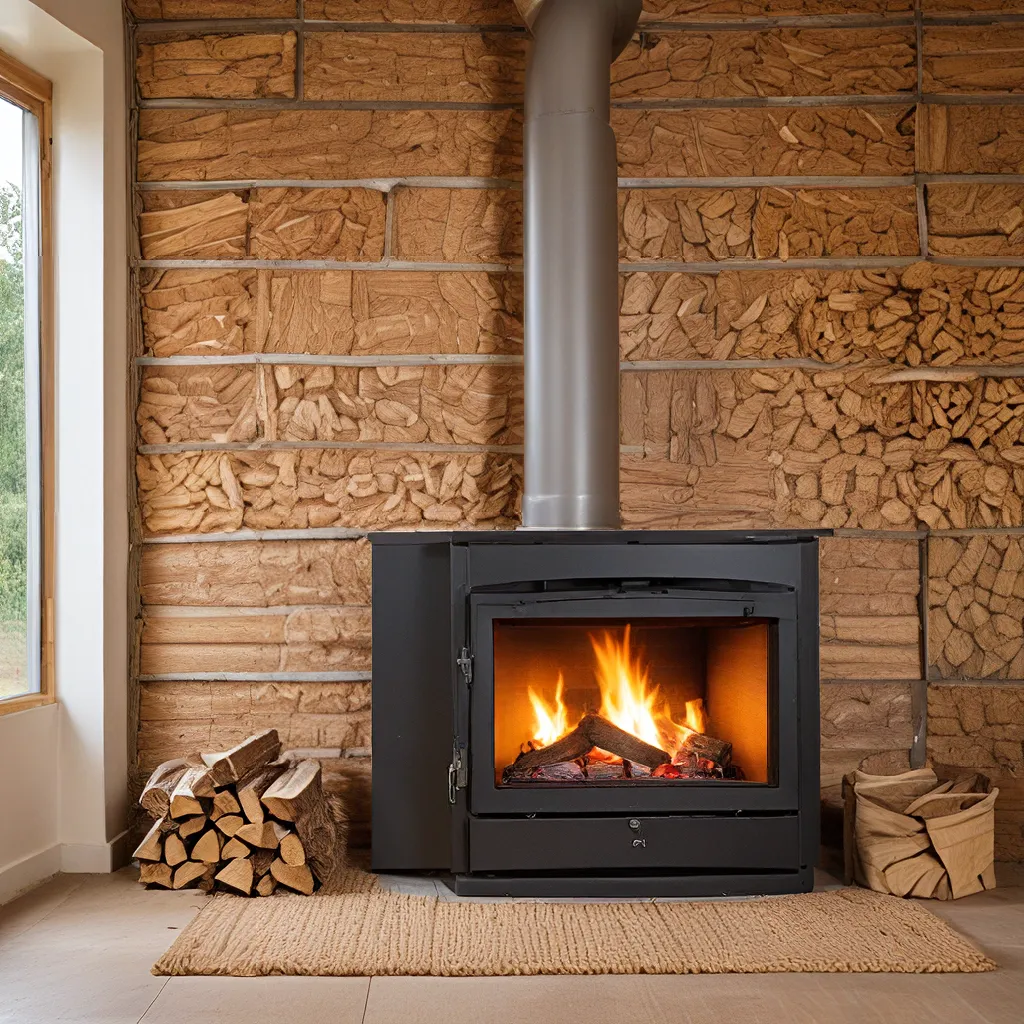
Unleashing the Heat within: Biomass, the Renewable Powerhouse
Imagine a world where your home’s heating system not only keeps you toasty warm, but also contributes to a healthier planet. That’s the promise of biomass heating systems – a renewable energy source that’s quietly revolutionizing the way we power our homes.
It all began with a simple observation. As I stood in my backyard, watching the leaves rustling in the breeze, I realized that the very same energy that sustained those trees could be harnessed to heat my home. That’s when the idea of biomass heating systems took root in my mind, and I decided to embark on a journey to uncover their power.
Biomass Basics: Fueling a Sustainable Future
At its core, biomass energy is the transformation of organic matter, such as wood, agricultural waste, or even municipal solid waste, into a usable form of heat or electricity. Unlike fossil fuels, biomass is considered a renewable resource – one that can be replenished and utilized in a sustainable manner.
The beauty of biomass lies in its versatility. It can power everything from individual home heating systems to large-scale power plants, all while reducing our reliance on carbon-intensive fossil fuels. And the benefits don’t stop there. Biomass systems can actually store carbon, effectively removing it from the atmosphere and mitigating the effects of climate change.
Heating Homes the Renewable Way
Imagine a cozy winter evening, the fireplace crackling with a warm, inviting glow. Now, picture that same scene, but with a twist – the fuel powering that fire isn’t wood, but rather a sustainable biomass pellet or log. Welcome to the world of renewable home heating, where biomass systems are the stars of the show.
These systems are designed to seamlessly integrate into your home, providing efficient and eco-friendly heating solutions. By harnessing the energy stored within organic materials, biomass systems can generate heat with a significantly lower carbon footprint than traditional gas or electric furnaces.
The Biomass Advantage: Efficiency, Sustainability, and Cost-Effectiveness
Efficiency is the name of the game when it comes to biomass heating systems. Unlike the inefficient combustion of wood in a traditional fireplace, these systems are engineered to maximize heat output while minimizing waste. They can achieve efficiency levels of up to 90%, ensuring that the energy you invest in heating your home is put to good use.
But the benefits of biomass heating don’t stop there. As countries around the world embrace renewable energy sources, biomass is emerging as a frontrunner in the race for sustainable home heating. By tapping into a renewable fuel source, biomass systems can reduce your carbon footprint and contribute to a greener future.
And let’s not forget about the financial aspect. Biomass heating systems can be surprisingly cost-effective, with fuel costs that are often lower than traditional heating methods. Plus, with the growing availability of government incentives and rebates for renewable energy investments, the financial barriers to adopting biomass technology are diminishing.
Exploring the Biomass Ecosystem: Fuels, Systems, and Innovation
The world of biomass heating is as diverse as the organic materials that power it. From wood pellets and logs to agricultural waste and even household garbage, the fuel options are seemingly endless. Each type of biomass fuel has its own unique properties, efficiency, and environmental impact, so it’s essential to do your research and choose the one that best suits your needs.
The systems that harness this renewable energy are equally diverse. From sleek and modern pellet stoves to efficient boiler systems, the biomass heating market is teeming with innovative solutions that can seamlessly integrate into your home. And as the technology continues to evolve, the efficiency and user-friendliness of these systems are reaching new heights.
Embracing the Future of Renewable Home Heating
As I reflect on my journey of discovering the power of biomass systems, I’m struck by the profound impact they can have on our homes and our planet. By embracing this renewable energy source, we’re not just keeping our homes warm – we’re actively contributing to a more sustainable future.
So, what are you waiting for? Explore the world of biomass heating and unlock the potential of renewable energy in your own home. It’s a decision that not only keeps you cozy, but also helps to shape a greener, more sustainable tomorrow.
Biomass Heating Systems: A Comparison
To help you navigate the world of biomass heating, let’s take a closer look at some of the most popular system types and their key features:
| System Type | Fuel Source | Efficiency | Pros | Cons |
|---|---|---|---|---|
| Pellet Stoves | Wood pellets | 80-90% | – Highly efficient – Automated feeding system – Clean and low-emission |
– Requires regular maintenance – Pellet storage and delivery |
| Biomass Boilers | Wood logs, pellets, or chips | 80-95% | – Suitable for whole-home heating – Can integrate with other systems – Long burn times |
– Larger installation footprint – Higher upfront cost |
| Biomass Furnaces | Wood logs, pellets, or chips | 70-85% | – Compact design – Can replace existing furnaces – Versatile fuel options |
– Lower efficiency compared to boilers – Manual fuel loading |
| Pellet Fireplaces | Wood pellets | 75-85% | – Aesthetic appeal of a fireplace – Automated fuel feeding |
– Limited heating capacity – Pellet storage requirements |
Remember, the right biomass heating system for your home will depend on your specific needs, budget, and energy-efficiency goals. Carefully evaluate these options and consult with energy-saving experts to find the perfect fit.